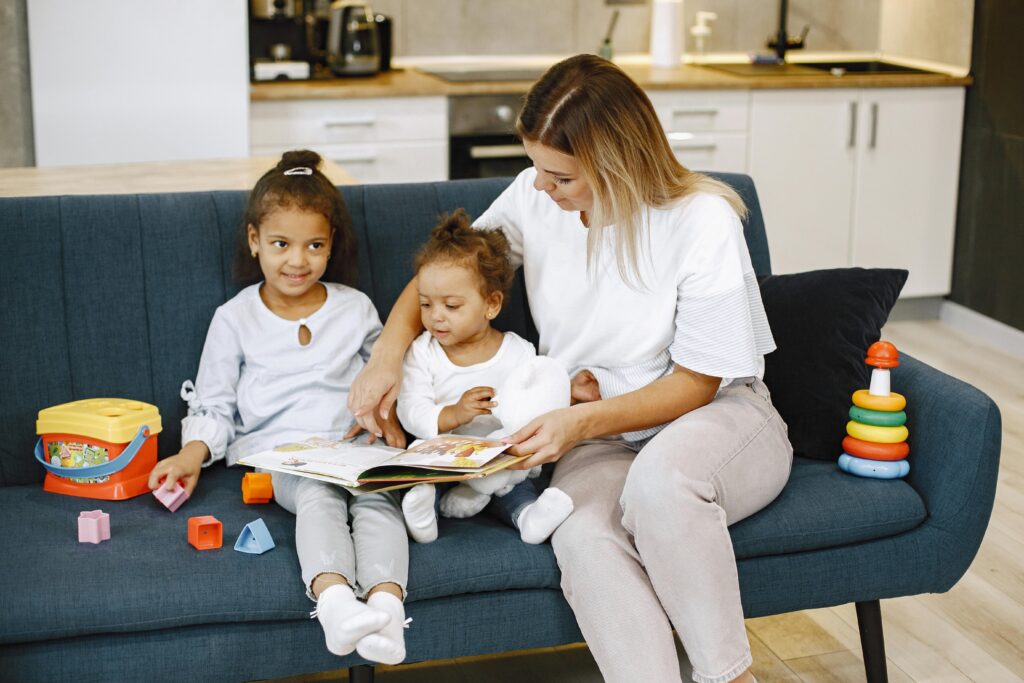From the moment a child is born, a precious parent-child bond takes shape and gives indescribable joy through the new journey.
A strong and secure relationship between parents and kids is essential for the overall well-being of the family.
“The point of parenting isn’t to have all the answers before we start out, but instead to figure it out on the go as our children grow, because as they do, so will we.” – Bridgett Miller
To strengthen and nurture your parent-child bond, here are a few simple tips to help you keep going throughout the path of parenthood.
Managing daily routines

A daily routine brings consistency, fostering trust between parents and children, and creating a secure environment for kids.
When a warm hug every morning, screen-free breakfast time, comforting bedtime story, and sharing daily experiences become a part of your daily rhythm, your routine gets well-structured and helps you connect better as a family.
Having a daily routine in place helps ensure clear boundaries and expectations, without having to enforce them every day.
Read more: Spending little moments with kids
The small moments of love and care shared daily are the ones that add depth and warmth to a parent-child relationship.
Being in the moment

It’s about putting aside distractions like phones, to-do lists, or outside worries and truly tuning into what your child is experiencing right now.
This could be as simple as listening intently to a story they’re telling, observing their play without interrupting, or noticing the subtle cues in their body language and emotions.
This kind of attention helps build trust and connection, because your child sees that you genuinely care about what matters to them.
Over time, this consistent presence forms the foundation of a strong, secure parent-child relationship.
Read more: 5 ways to practice mindful parenting
Children who feel seen and heard by their parents are more likely to feel safe, valued, and understood, which supports emotional well-being, confidence, and healthy communication.
Being present is often experienced in small things like looking your child in the eye, sharing a laugh, and listening without rushing to fix. It’s about slowing down and meeting your child where they are, right now.
Open communication

How you respond to what your child communicates plays a crucial role in shaping their emotional development and their relationship with you.
When parents respond with judgment, anger, or harshness, especially when it becomes a pattern, children may begin to hide things, lie, or withhold information out of fear of being scolded, shamed, or misunderstood.
This doesn’t just damage communication in a parent-child connection, but can create long-term emotional barriers that affect their confidence, self-worth, and how they relate to others.
Read more: 8 ways to build your child’s self-esteem.
Responding with calmness, curiosity, and empathy, even in challenging moments, sends the message that it’s okay to feel, to make mistakes, and to talk about hard things.
This doesn’t mean letting children “get away with” everything. Healthy boundaries and guidance are essential.
But how those boundaries are communicated matters. A child is much more likely to listen and learn when they feel respected and understood, rather than afraid and silenced.
Consistency and boundaries

Consistency and clear boundaries are foundational to building a healthy, respectful, and secure parent-child relationship.
Children thrive when they know what to expect, not just in routines, but in how parents respond to their behavior.
Setting boundaries doesn’t mean being harsh or overly strict.
In fact, loving boundaries are one of the most powerful ways to show your child that you care. They help children understand what is acceptable and what isn’t.
Why do children need boundaries?
Consistent, age-appropriate consequences help them learn from their mistakes and take responsibility for their actions.
When rules and expectations are enforced calmly and reliably, children are more likely to respect them and eventually internalize them as part of their own self-discipline.
Ultimately, clear, consistent parenting communicates safety, love, and respect in a parent-child relationship.
It tells your child, “I care enough to guide you, and I respect you enough to hold you accountable.”
Do you agree that a balance between firmness and warmth builds a strong, lasting, and emotionally healthy parent-child bond? Do share in comments.





Pingback: 5 Tips To Empower Your Child Against Bullying - Natural goodness
Pingback: Kids and their moods - Natural goodness